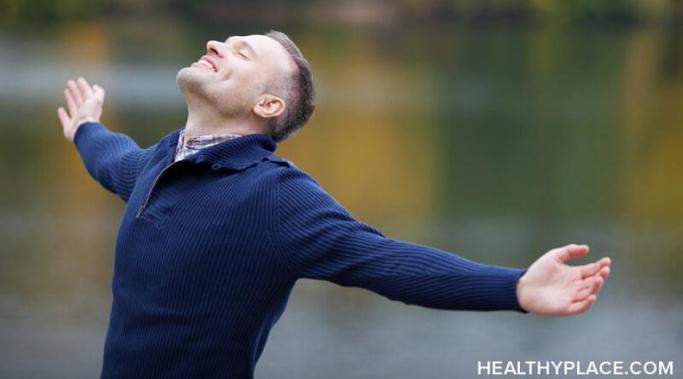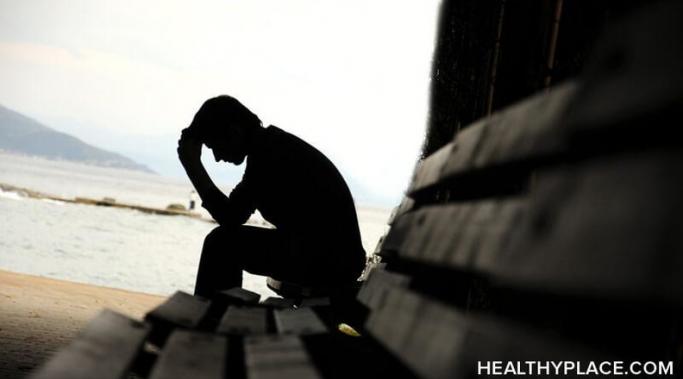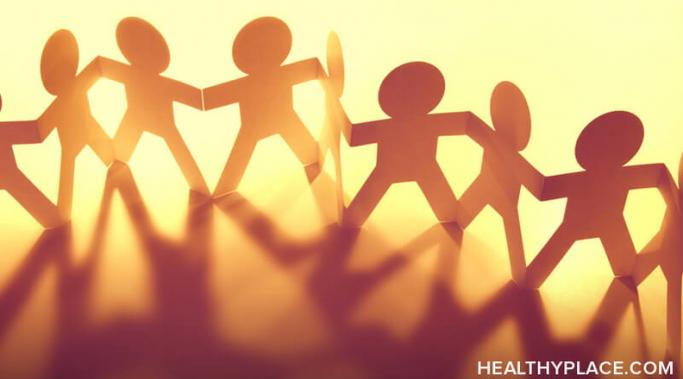Blogs
Being in awe as a thought practice can completely transform the way you experience the world. If you wake up and choose to live in awe, you’ll likely notice previously-missed details in your environment and the people around you ("The Relationship Between Anxiety and Awe"). Being in awe is so natural to children; if you spend time around kids, you’ll notice they’re fascinated by small details. Bubbles, colors, animals, nature, and how things work all fascinate children. However, as we grow older, we lose some of this awe and wonder, and the feeling of being in awe disappears.
I've been living with schizoaffective symptoms for 20 years. In fact, this holiday season marks the 20th anniversary of my first and only schizoaffective psychotic episode. Since I'm 39 years old, that means I've had schizoaffective disorder for a longer time than I'd lived without it. It means I've grown and changed with the illness. Not only am I a different person than I was without schizoaffective disorder, but I'm a different person than I was when I first became ill. I wasn't going to write about this, but the anniversary of living with schizoaffective symptoms is making those symptoms worse.
Anxiety has a yin and a yang, which, when embraced, can help you find the balance that reduces anxiety. Originating from ancient Chinese philosophy, yin and yang are complementary forces, opposite but not oppositional. They are balancing energies that can at once both soothe and strengthen. Everything and everyone has yin and yang, including anxiety and its reduction. Anxiety's (and anxiety management's) yin and yang, its balancing forces, are acceptance and action. You can use acceptance and action to soothe your anxiety and move ahead into your quality life.
Knowing how to deal with a crisis is especially important when those of us diagnosed with depression are faced with one. It can be especially difficult to cope with both the crisis and our depression simultaneously. Yet, in spite of the difficulties, we can not only survive but even thrive while managing both a crisis and our depression. This can be done by practicing the effective coping skills discussed in this post for dealing with a crisis.
It's important to be aware of signs of low self-esteem because sometimes it can be difficult to know if you suffer from low self-esteem. This is because people who have low self-esteem carry around a certain self-image that they believe is absolutely true. This negative version of yourself remains a constant. You continue to have the same harsh opinions and beliefs about what you’re like as a person. When these thoughts and negative self-image are sustained for long enough, it can be hard to take a step back and see that it’s far removed from reality. Which is why it’s crucial to be conscious of signs of low self-esteem. If the following ways of thinking and behaving apply to you, then you may have some underlying self-esteem issues that need addressing.
It's beneficial to be committed to healthy living and choose to make fitness an integral part of your routine, but if you are susceptible to disordered eating behaviors, that passion for exercise could turn into an addiction. Being physically active is important for stress reduction, balanced emotions, hormone regulation, and optimal body functions. However, fitness can become more harmful than helpful when the need to workout feels driven by compulsion instead of enjoyment and well-being. Here are some indicators that your passion for exercise has turned into an addiction—or an extension of your eating disorder.
Some coping mechanisms for self-harm act immediately to help stop the urge. In fact, sometimes all we need to get us committed to stop engaging in self-harm is knowing that there are alternative ways of coping with distress and satisfying self-harm compulsions. An important step toward self-harm recovery involves familiarizing ourselves with these alternative coping mechanisms for self-harm, figuring out what works for us, and creating a toolbox (whether that be a mental toolbox or a literal collection of physical objects) of things that we can turn to in our more vulnerable moments.
Winter is a great time to experience the joy of hygge. If you've never heard of the Scandinavian practice of hygge (pronounced HOO-guh), think crackling fire, fuzzy socks, mugs of hot cocoa, flannel pajamas, and warm blankets. There is no direct translation in English, but it derives from the Norwegian word for "wellbeing." Hygge is generally considered a Danish practice that encourages wellness by creating cozy, comforting experiences. As the daughter of a Norwegian immigrant, my mom often incorporated this concept into our home environment and I have a deep appreciation for it. Whenever I'm feeling anxious or sad, I know I can soothe myself by practicing the joy of hygge.
Today I'd like to say what I'm not thankful for: I'm not thankful for bipolar disorder. Now that Thanksgiving is over, and people have said what they are thankful for, I want to focus on this for a minute. This isn't meant to be negative but, rather, simply a fact. While I know some feel differently, for me, bipolar disorder is something I'm just not thankful for.
The focus on food during the holidays tends to cause a good deal of stress and anxiety when dealing with an eating disorder. In fact, when I think of the holiday season, three things come to mind: family, friends, and the big one, food. This year, let's stay present on what really matters instead of fixating on what, when, and how much we eat.










I believe she will only be able to rid herself of her demons, and hopefully her BPD as well, when she's ready to confront the abuse of her father. If she can put the blame where it belongs, she may stop projecting that victim/perpetrator cycle on the present men in her life. These demons are a metaphor for the purgatory she has created for herself. That reality has consequences in the real world, but it need not be real in the tangible sense. Exorcising her demons will require the expenditure of real physical energy and probably the destruction of aspects of her personality. If this ever happens, and it's possible but not probable, then these demons will evaporate. They are only as real as one's personality is real. In short, reality is not the question, it's what you make of the things you feel to be real.